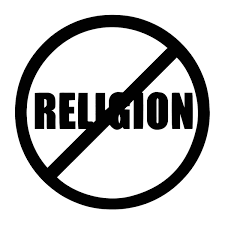
Jack Wolfsohn | Head Editor
May 19 2023
Religion has long played a significant role in shaping the cultural, social, and political landscape of the United States. However, in recent years, America has witnessed a noticeable decline in religious affiliation and engagement. This essay aims to explore the factors contributing to the decline of religion in America and to understand the implications of this shift on society.
Changing Demographics:
One of the primary factors behind the decline of religion in America is the changing demographics. The country has become more diverse in terms of ethnicity, culture, and religious beliefs. The influx of immigrants from various parts of the world has introduced different religious practices and perspectives, thereby diluting the dominance of traditional religious institutions. As a result, a growing number of Americans identify as religiously unaffiliated or adhere to non-traditional spiritual beliefs.
Secularization and Modernization:
The forces of secularization and modernization have also played a significant role in the decline of religion. As societies become more developed and advanced, there is a tendency for individuals to rely more on science, reason, and evidence-based thinking. Traditional religious beliefs, which often rely on faith and ancient texts, may struggle to find resonance in a society that values empirical evidence and rational thought. Consequently, many Americans have shifted away from religious institutions and embraced a more secular worldview.

Influence of Science and Technology:
“Historically, the low quality of life would almost require one to turn to faith in order to keep moving forward,” mentioned senior Kyle Desrosiers, “but now, since life is much easier, fulfillment can be found outside of religion. So naturally, religious participation has begun to decline.”
Advancements in science and technology have expanded our understanding of the world, challenging religious narratives and beliefs. The increase in scientific knowledge and discoveries has led to a perceived conflict between science and religion, particularly in areas such as evolution, cosmology, and reproductive technologies. As science provides alternative explanations for natural phenomena, some individuals may find it difficult to reconcile these explanations with their religious beliefs, contributing to a decline in religious adherence.
Changing Social Attitudes:
“There’s a lot of issues within older scriptures that don’t apply to the present day,” commented senior Christian McCleary, “and as a result, it becomes difficult to be religiously strict.”
American society has witnessed significant shifts in social attitudes towards various issues, including gender and sexual orientation. As societal norms evolve, religious institutions that hold conservative views on these matters may find themselves at odds with prevailing sentiment. This disconnect can lead to disillusionment among younger generations, who often prioritize inclusivity, equality, and social justice. Consequently, individuals may disengage from religious organizations that do not align with their values, contributing to the decline in religious affiliation.
Scandals and Institutional Failures:
Instances of religious scandals and institutional failures have also eroded public trust in organized religion. Reports of clergy abuse, financial misconduct, and other scandals have tarnished the reputation of religious institutions, leading some individuals to distance themselves from organized religion altogether. These incidents have further contributed to the decline of religion by creating skepticism and disillusionment among both current and potential adherents.
Conclusion:
The decline of religion in America can be attributed to a confluence of factors, including changing demographics, secularization and modernization, the influence of science and technology, changing social attitudes, and scandals within religious institutions. As the religious landscape continues to evolve, it is important to recognize and respect the diversity of beliefs and worldviews held by individuals in society. While the decline of organized religion may pose challenges, it also presents an opportunity for increased interfaith dialogue, the exploration of alternative spiritual practices, and the cultivation of secular ethics. Ultimately, understanding the factors behind this decline can help society navigate the changing religious landscape and foster a more inclusive and pluralistic future.

Leave a Reply